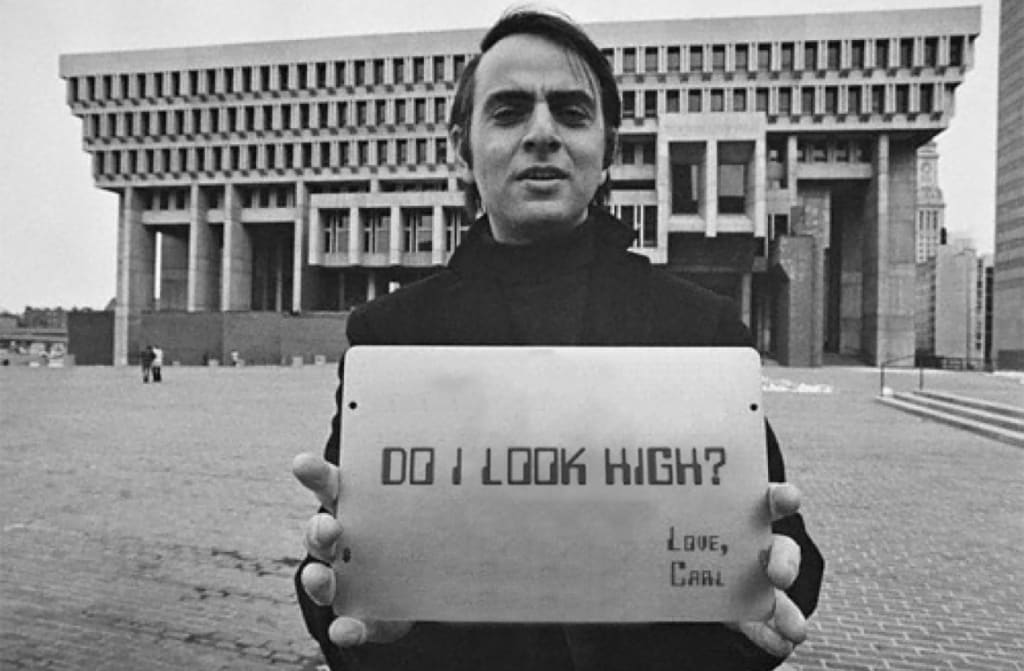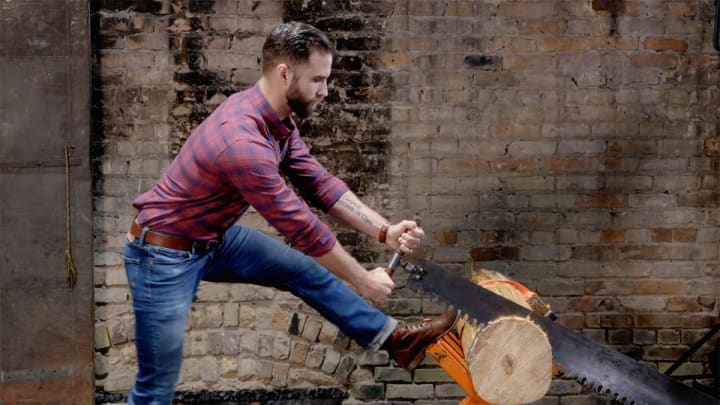How to Break the Stoner Stereotype
Mastering the art of perception will help you break the stoner stereotype.

So, what is ‘the stoner stereotype’ exactly? Lazy, lethargic, always late, has uncontrollable munchies, can’t be relied on and so forth. You get it, Harold and Kumar types. The issue is that many important people in your life who you might not want to think of you as a stoner (such as business owners, investors, potential partners, clientele or even your parents) might judge you according to these labels. You don’t want that, trust me! I’m not saying all of them think badly about weed or weed smokers, but for those who do, we need to help change their perceptions. Steve Jobs, Carl Sagan, Bill Gates, Michael Phelps, the list goes on, are all recognized as successful individuals who use/d marijuana recreationally without any 'real' problems – apart from a few run-ins with the law. The stigma attached to pot smoking needs to change, and that’s why I’m here. I’m here to tell you exactly why that stigma is, well, just a stigma and nothing more than that. Hopefully after reading this, it will help you break the stoner stereotype and not just be smart about it, but act it too!
Here are three scenarios with very 'normal' people who smoke a load of chronic and yet, are still able to break the stoner stereotype - and with style I might add. How do they do it, you ask? Learn the art of perception my friend.
Stoner 1: Chloe

What I can tell you, along with many people who’ve been labeled with the stoner stereotype, is that it’s a tag that really sets you back in life. It’s something that set me back for a very long time, and many people didn’t take me seriously until I changed some important aspects of my life. My parents always thought I would be the kid who would never make it quite like my friend: the business minded non-pothead…or so they thought. You see, my friend Chloe never acted like a stoner. She was never lazy, complacent, apathetic or lethargic. And if she was, she played it like a pro. Sometime you could catch her blazing big fatty’s and puffing clouds of indica while rolling down the highway, but that’s not all she did. She was also yoga instructor, a full-time student pursuing a business and marketing MBA, in addition to working as a model and bartender for extra cash. What’s also important to mention here is that she didn't look like a stoner – she never ever looked burnt out. She exercised avidly and always maintained a healthy diet.

My point here is that she never let her stoner ways infiltrate into the way people perceived her. And that’s the key word here, ladies and gentlemen: perception. You’ve got to change the way people perceive you if you want them to treat you differently. If you don’t want to be labeled a stoner then don’t behave like one. If you don’t want to be labeled a lazy slob, then don’t act like one. Be the person you want to be and make sure you have the will power and grit to BE that person without letting the marijuana influence, influence you. So, how could Chloe be a stoner while maintaining this seemingly perfect outside view of herself to the public? Well, the fact is it was her behavior, determination and the integrity of her character that set her apart from the other stoners. I am happy to report that today she runs one of most successful marketing firms in town. Not to mention, she’s also a full time mom and finally got her MBA degree. Of course, she still manages to sneak a few pulls off her bowl daily!
Stoner 2: Jay

Stoner number two is Jay, a small town kid with only one ambition in life: to build stuff and get high doing it. Jay grew up developing the super power of being able to build things, while being really high. He’d spend his evenings building hydroponic system’s, sowing and creating leather bound books, wallets, leather couches and chairs only to get up the next day for his full time job - hardly a lazy slob. To rewind briefly, his early high school days involved smoking up before getting down and dirty with a art and engineering text books, only to become utterly immersed in creating new ideas to build things for hours on. He left school top of his class and went on to become a successful furniture designer. So, how could this stoner come whiz kid pull all that off, as high as he was? Surely weed slows you down, makes it hard to concentrate, gives you uncontrollable munchies that makes it impossible to study?

The list of stoner stereotypes is an extensive one. But Jay was never affected like that, and many people aren’t. Those are in fact, just stereotypes. Jay used weed to his advantage. He perceived weed as something that would help him. Like an ergogenic aid of the mind. Somewhat of a Nootropic (smart drug). That said, he does know there’s a time and a place for everything. He’d never be drilling holes or sawing wood while being high, he practices with the utmost professionalism. Although he may smoke pot, he doesn’t let it affect his work ethic and the way his clientele see him. He understands that perception is critical in this world and although he absolutely loves to spark up every now again, he would never let weed smoking affect his quality of work and the relationships in his life. In other words, he runs the weed, the weed doesn’t run him. Jay is a clear example of how to break the stoner stereotype.
Stoner 3: Max

Once there was a 19 year old graffiti artist, cruising through the streets on his skateboard, eyes as red as the devil himself. This kid named Max had always been seen by his parents, friends and teachers as ‘the stoner’, or at least part of the stoner crew. In other words he was seen as lazy, complacent, apathetic and lackluster in his ways. He had a creative flair but always thought his peers out-drew or out-designed him. How could this kid ever make a success of himself with that mentality and social pressure of what society expected him to behave like? Well, over time the kid’s views of himself saw other people treat him in just the same way. If there ever was a self-fulfilling prophecy situation, this was it. He ended up being the average of average. Max went to design school, just managed to pass, got an average design job, earned an average salary… and spent a lot of it on good weed. He never really followed his dreams because he acted like a stoner, and lived up to the stereotypes out there.

This cycle continued and as this young stoner grew older and unhappier about being sucked into a role in life that he didn’t believe was his. He grew agitated and decided to take action and recreate his own identity. Deep down, beneath this creative stoner, was an inquisitive person with dreams to make his life mean something. It was only many years later that this kid decided to go back to his passion. He ditched his day job and made a risk to follow his passion of painting. Today he is one most highly sought after artists. Max's journey was a long one, but he was relentless in digging himself out of that stereotypical stoner hole, by turning his life around and stopping himself acting like a stoner. He sharpened up, got super fit and became a master of his craft. In other words, this seemingly hopeless, 'doomed' kid found a way to break the stoner stereotype.
In the end...

At the end of the day dear readers, weed is not the problem. How people view the stuff is. The public’s perception of a substance that is now, more often than not, proving to be relatively harmless, is more powerful than the substance itself. Decades upon decades of conditioning by western governments have lead people to believe that the plant is evil and leads to deviant behavior. People like Chloe know that weed isn’t an issue unless you let it become one. Just like eating M&M’s or doughnuts aren’t the problem – it’s allowing them to have control over you in addition to people’s perceptions of over eating that is the real problem!
Chloe knew that people’s actions are extremely powerful, so in order to take control and empower herself regarding how people saw her (while still smoking weed) she made sure that she pulled her weight and didn’t give any reason to have those stereotypical labels put to her name. Jay also made sure that if he was to enjoy his daily bong, he’d have to make damn sure that he was still true to himself and didn’t let it affect his work ethic. And lastly, the kid also realized that being a stoner wasn’t the problem. It was how he acted that needed to change.
If you take anything from this article, it should be that you need to be TRUE to yourself. This is a call to all stoners out there. Remember, don’t become the stoner stereotype. It’s just a label and you shouldn’t let it become your identity by letting it get the better of you. I would also implore you to give others the same opportunity, with weed or any other stereotypes out there. Enjoy getting high but also try remembering to stay on top of your affairs and follow your passion – don’t allow weed to dictate who you are or let it make you perceive that you are a stoner when weed smoking doesn’t define you.
About the Creator
George Gott
Writer & Social Media Editor for Jerrickmedia who is an avid reader of sci-fi and a fierce defender of women, minority, and LGBTQ rights.






Comments
There are no comments for this story
Be the first to respond and start the conversation.